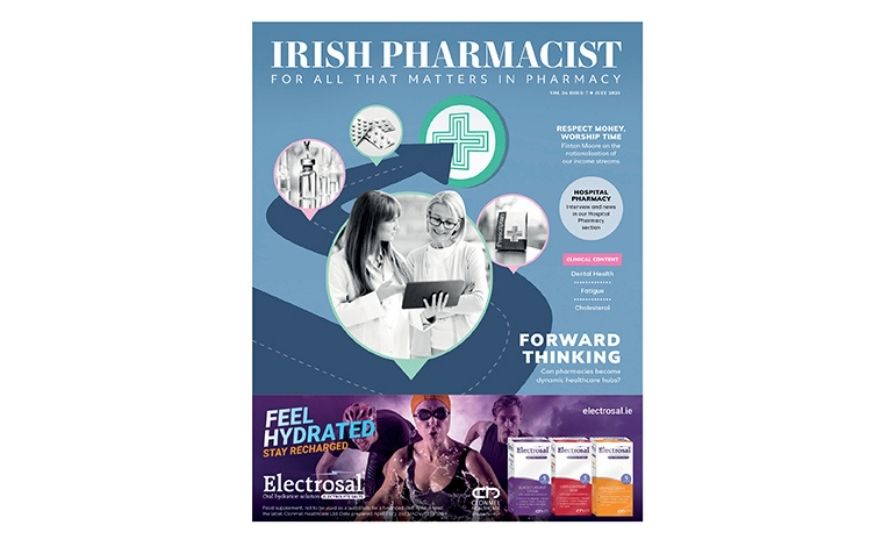There is a case to be made for a cheap, well-balanced pregnancy supplement available on the GMS, writes Fintan Moore
There’s been a huge amount of discussion in recent years about the negative effects of the average diet on the population’s physical health, especially with regard to the frightening levels of obesity with the associated problems of diabetes and heart disease. The food environment that we live in is accurately described as ‘obesogenic’ and despite the advances seen in so many areas of health and disease management, there has been a stark failure to stop the rot. An interesting book by psychologist Kimberley Wilson, Unprocessed: How the Food We Eat Is Fuelling Our Mental Health Crisis, lays out the case that in addition to physical health problems, poor diet is also responsible for many mental health problems.
Wilson uses research findings to discuss the role of food and nutrients in brain development and mental health, including how the food a woman eats during pregnancy influences the size of her baby’s brain, how hunger ‘makes you mean’, and how nutrient deficiencies change your personality. She makes the argument that poor nutrition is a social injustice, with the poorest and most vulnerable being systematically ignored. She writes about her work in schools and prisons to illustrate the points made by the research.
Overall, the parallels with the obesity epidemic are apparent. Huge amounts of Government health spending goes to treat the results of poor diet, which can be life-long in the case of babies conceived, developed and born in conditions of food poverty. Children who are hungry or poorly nourished are doomed to struggle with learning and behaviour. Sadly, the scale of the problem means that it is probably beyond the imagination and competence of our political system to deal with it, but as one small measure that could help, consideration should be given to having a cheap well-balanced pregnancy supplement available on the GMS. This would certainly be of benefit, and the same logic might apply to having a reimbursable children’s multivitamin. At the very least, a cost-benefit analysis should be carried out.
Dreams and Schemes
We’ve been promised reversals of FEMPI for years, with no obvious sign of light at the end of that particular tunnel. Even some kind of fee increase to allow for inflation eroding away the real value of our dispensing fee would be welcome, but that’s also probably too much to hope for. The only scope for fee increases within our control is on private prescriptions, and even that field has been shrunk by the reduction in the DPS threshold and the introduction of the free contraception scheme. The flexibility to push up private prices also has to balanced against the nature of the highly-competitive market we operate in, especially with some operators advertising heavy discounts on loss-leaders.
The word on the vine seems to be that any new HSE money into the world of pharmacy will come as payment for new schemes, such as a Minor Ailments Scheme. At the risk of sounding negative, I’m giving this news a muted cheer. It’s a nice idea, but at the moment I’m so flat-out just coping with the regular workload that if I have to squeeze in more work in order to get more money, I’d rather just do without the extra money. I’m sure that there are other pharmacists who have spare capacity and are chomping at the bit to take it on, but the problem in my world is that bureaucracy, regulatory-compliance, FMD-scanning, medication shortages, wholesaler service failures, and the knock-on effects of dealing with problems created by overworked GPs and hospitals have eliminated my willingness to adopt new headaches.
Maybe I just need a holiday and I’ll feel more enthusiastic when I get back, for at least the first 24 hours anyway.
Pick-up Lines
It’s been three years now since the Covid crisis slouched Healthmail into its Bethlehem to be born, but I still find it tricky to figure out what people mean when they call in to ‘collect a prescription’. Sometimes the way they ask gives me the mistaken impression that they’re picking up something prepared already, so I fruitlessly search our collection of prescription bags before the light dawns that it’s not already done. I’ve also made the mistake of asking them, ‘was the prescription ordered already?’ and not realising that the answer ‘Yes’ just meant that they’d ordered it off the GP, not from us. So there’s no perfect formula that I’ve worked out, but I’ve started to err on the side of asking too many questions rather than too few, so I follow up the ‘Was it ordered already?’ with ‘And was it ordered from us to be got ready, or ordered from the doctor?’ which eliminates some of the uncertainty. The other issue that crops up is when somebody has a regular prescription on file but is actually in for a different item like an antibiotic that has just been Healthmailed in that day, but they don’t bother mentioning that bit, so it’s no harm to throw in a clarifying ‘Is it just your regular medication you’re collecting or is there anything new?’
And even at the end of that, there will still be ways to create confusion, but that’s just the ‘new normal’. ?







